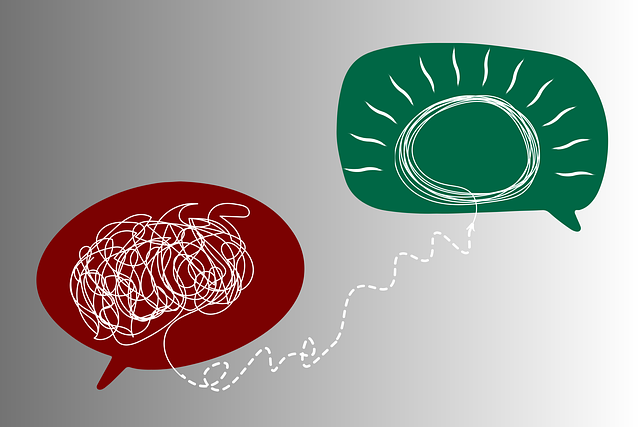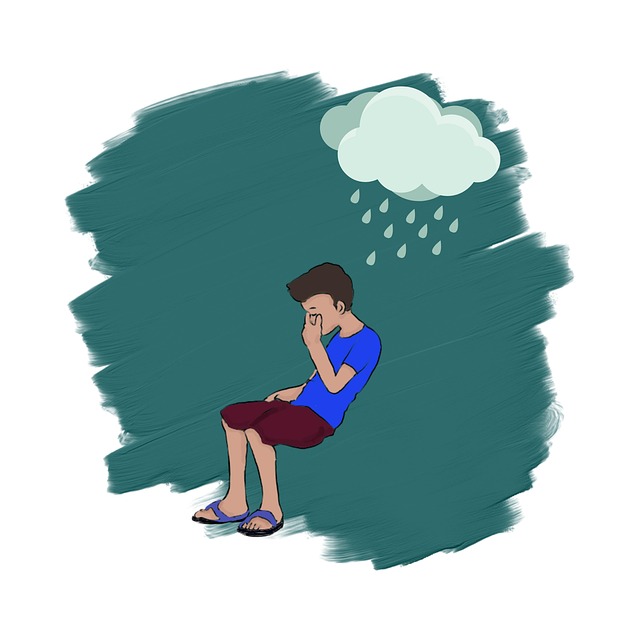Mental health challenges among young adults aged 18-25 in the US are rising, with Spanish-speaking individuals facing unique barriers due to language differences and a lack of culturally sensitive resources. Community Outreach Programs are crucial in promoting mental wellness through targeted initiatives like therapy for Spanish-speaking youth. Cultural competency from therapists helps overcome language, judgment, and historical mistrust barriers, creating safe spaces for open dialogue. Tailored strategies including emotional intelligence training and mental wellness journaling exercises empower individuals with coping mechanisms rooted in their cultural framework, leading to positive outcomes. Accessing culturally sensitive therapy is vital for addressing unique challenges faced by Spanish-speaking young adults.
Mental wellness promotion among young adults, especially within Spanish-speaking communities in the U.S., presents unique challenges. This article delves into understanding prevalent mental health issues faced by this demographic, highlighting cultural competency as a key factor in improving access to effective therapy. We explore barriers hindering young adults from seeking help and discuss tailored approaches that cater to their specific needs. Furthermore, it highlights community initiatives fostering resilience and overall wellness, with a focus on strategies for Spanish-speaking youth.
- Understanding Mental Health Challenges Among Young Adults in the U.S.
- The Role of Cultural Competency in Spanish-Speaking Communities
- Overcoming Barriers to Accessing Therapy for Young Adults
- Effective Therapy Approaches Tailored for Spanish-Speaking Youth
- Building Resilience and Promoting Wellness Through Community Initiatives
Understanding Mental Health Challenges Among Young Adults in the U.S.

In the United States, mental health challenges among young adults have become a growing concern. This demographic faces unique pressures, including academic expectations, financial instability, and social media’s constant comparison culture, which can contribute to heightened anxiety, depression, and even suicidal ideation. According to recent studies, the rate of severe depression among individuals aged 18–25 has increased significantly in the past decade.
The Spanish-speaking community within this age group often faces additional barriers to accessing mental health support. Language differences and a lack of culturally sensitive resources can make it challenging for young adults to find appropriate therapy. This is where Community Outreach Programs prove invaluable, aiming to bridge these gaps through targeted initiatives. By implementing such programs, there’s an opportunity to enhance mental wellness promotion, ensuring that all young adults, regardless of their background or language proficiency, have access to the care they need, including therapy for young adults Spanish speaking. Additionally, building confidence in seeking help and effective risk management planning for mental health professionals can significantly contribute to improving overall mental health outcomes among this demographic.
The Role of Cultural Competency in Spanish-Speaking Communities

In Spanish-speaking communities, cultural competency plays a pivotal role in mental wellness promotion among young adults. Understanding and respecting the unique cultural contexts, beliefs, and communication styles of these individuals is essential for delivering effective therapy. Many Spanish-speaking youth face barriers to accessing mental health services due to language differences, fear of judgment, and mistrust stemming from historical experiences. Therapists who are proficient in Spanish and sensitive to cultural nuances can create a safe and supportive environment, fostering open dialogue and encouraging the expression of emotions.
By incorporating confidence-boosting techniques and emotional well-being promotion strategies tailored to these communities, therapists can significantly impact the lives of young adults seeking therapy for mental health issues. This approach not only addresses immediate concerns but also empowers individuals with coping mechanisms that resonate within their cultural framework, leading to long-lasting positive outcomes.
Overcoming Barriers to Accessing Therapy for Young Adults

Many young adults face barriers when it comes to accessing therapy, especially those who identify as Spanish speaking. Cultural and linguistic differences can create a sense of isolation and make it challenging to find suitable treatment options. Stigma surrounding mental health issues is prevalent, leading to hesitancy in seeking professional help. Overcoming these obstacles requires tailored approaches that address both the unique cultural needs and language preferences of this demographic.
One effective strategy is providing therapy services in their native language, ensuring accessible communication. Emotional intelligence training can also empower young adults with the skills to recognize and manage their emotions, fostering self-care routines for better mental health. By combining these emotional well-being promotion techniques, we can create inclusive environments that encourage open conversations about mental wellness and ultimately improve access to much-needed therapy for Spanish speaking young adults.
Effective Therapy Approaches Tailored for Spanish-Speaking Youth

For Spanish-speaking youth, accessing mental wellness services tailored to their cultural needs is essential. Effective therapy approaches that bridge the gap between language and care are crucial in addressing the unique challenges faced by this demographic. Many young adults from Spanish-speaking backgrounds may encounter barriers when seeking help for mental illness due to stigma reduction efforts and a lack of culturally sensitive healthcare practices.
Culturally competent therapists play a vital role in promoting emotional well-being techniques that resonate with these individuals. By incorporating Cultural Sensitivity in Mental Healthcare Practice, therapists can create a safe and supportive environment, encouraging open communication and understanding of their experiences. This personalized approach ensures that therapy for young adults speaking Spanish is not only accessible but also effective in helping them navigate and overcome mental health struggles.
Building Resilience and Promoting Wellness Through Community Initiatives

Building resilience is a key aspect of promoting mental wellness among young adults, especially within diverse communities where Spanish-speaking individuals may face unique challenges. Community initiatives play a vital role in fostering an environment that encourages emotional well-being promotion techniques tailored to their needs. These programs often offer therapy for young adults in Spanish, making mental health support more accessible and culturally sensitive. By providing safe spaces for open dialogue, these initiatives help individuals develop coping strategies and build resilience against stress, anxiety, and other mental health issues.
One effective approach is incorporating Mental Wellness Journaling Exercises Guidance designed specifically for Spanish-speaking youth. Journaling allows individuals to express their thoughts and emotions while also providing a means of tracking progress over time. This simple yet powerful tool can be integrated into community programs, enabling participants to explore their emotional experiences and identify patterns that may contribute to their mental wellness or hinder it. Such initiatives not only promote self-awareness but also empower young adults with the skills to actively manage their mental health.
Mental wellness promotion among young adults, especially within Spanish-speaking communities in the U.S., requires a multifaceted approach. By addressing cultural competency, overcoming barriers to accessing therapy for young adults and implementing tailored therapy approaches, we can foster resilience and overall well-being. Community initiatives play a crucial role in this process, as they empower individuals and create supportive environments. Encouraging open conversations about mental health and providing accessible resources are essential steps towards ensuring that all young adults, regardless of their cultural background or language preference, have the opportunity to thrive and seek therapy when needed, particularly within Spanish-speaking populations.








